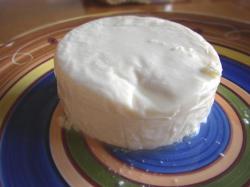Queso Fresco: Cheese With A Reputation
May 17, 2010 | 2 min to read

It's delicious in enchiladas, it complements black beans beautifully, and it's a wonderful addition to salads. Unfortunately for queso fresco–that quintessential Mexican fresh cheese–it also seems to have a knack for attracting pathogens such as Listeria.
If you go through the records for recalls over the past few years, you'll find that each recall linked to a commercial queso fresco producer has typically resulted from contamination after the cheese was produced. That isn't to say abuses don't happen. Just as in any industry, the great peanut recall of 2009 is a clear example, there are unscrupulous producers but they're rare enough to be remarkable. Of particular note is Peregrina Cheese Corporation.
The New York City maker of queso fresco as well as flan and other Hispanic food products seemed to have so many problems with hygiene they were forced to recall product six times in as many years. Things came to a head last year when the U.S. Food and Drug Administration (FDA) sought to put them out of business. Peregrina's owners, Isabella and Javier Peregrina, were cited repeatedly by the FDA for "filthy conditions".
Standing water on the floors of the factory, food transport equipment coated with dried crust from previous batches, and a dead rat on the premises were just a few of the many pieces of evidence cited by the FDA and the New York State Department of Health. Feds filed for an injunction to prevent Peregrina from making or distributing any foods at all but with the help of a New York federal judge, the Peregrinas were able to enter a consent decree that allowed them to remain in business but with 16 pages worth of restrictions and commitments. They're still in business.
To read the rest of the story, please go to: Food Safety News
